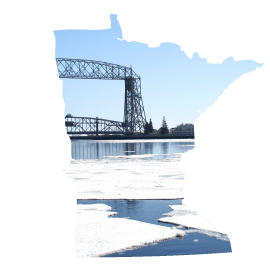Secondary Teacher Preparation in Science:
Minnesota
Delivering Well Prepared Teachers Policy
Analysis of Minnesota's policies
Commendably, Minnesota does not offer certification in general science for secondary teachers.
Middle school science teachers must earn a specific middle level endorsement, which requires a minor in science and an initial license in either elementary or secondary teaching. Commendably, candidates must also pass the MTLE Middle Level Science test.
Regrettably, however, teachers holding elementary K-6 licenses may also teach grades 7 and 8 in self-contained classrooms (see Goal 1-E).
Recommendations for Minnesota
State response to our analysis
Minnesota asserted that although the reference to self-contained classrooms taught by teachers with a K-6 license is accurate, it should be noted that these settings are very rare and represent very unique student populations such as those in a one-room schoolhouse: "The vast majority of teachers teach in a middle school, junior high school, or combined middle and high school, and are held to the requirement of a content-specific endorsement."
Select another topic
Delivering Well Prepared Teachers
- Admission into Preparation Programs
- Elementary Teacher Preparation
- Elementary Teacher Preparation in Reading Instruction
- Elementary Teacher Preparation in Mathematics
- Middle School Teacher Preparation
- Secondary Teacher Preparation
- Secondary Teacher Preparation in Science
- Secondary Teacher Preparation in Social Studies
- Special Education Teacher Preparation
- Assessing Professional Knowledge
- Student Teaching
- Teacher Preparation Program Accountability
Expanding the Pool of Teachers
Identifying Effective Teachers
- State Data Systems
- Evaluation of Effectiveness
- Frequency of Evaluations
- Tenure
- Licensure Advancement
- Equitable Distribution

